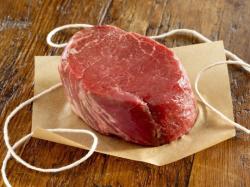No Association Between Red Meat & Colorectal Cancer, Analysis Finds
September 13, 2010 | 1 min to read

Currently available epidemiologic evidence is not sufficient to support an independent positive association between red meat consumption and colorectal cancer, according to a new review published in Obesity Reviews by researchers D.D. Alexander and C.A. Cushing.
In this comprehensive review, the currently available epidemiologic prospective studies of red meat intake and colorectal cancer were summarized to provide a greater understanding of any potential relationships. Specifically, salient demographic, methodological and analytical information was examined across 35 prospective studies.
Collectively, researchers found that associations between red meat consumption and colorectal cancer are generally weak in magnitude, with most relative risks below 1.50 and not statistically significant, and there is a lack of a clear dose–response trend.
Results were variable by tumor site and by gender. Data were not indicative of a positive association among women. Findings in men were slighting stronger, although the potential reasons for this observed disparity between genders was unclear.
“Colinearity between red meat intake and other dietary factors (e.g. Western lifestyle, high intake of refined sugars and alcohol, low intake of fruits, vegetables and fiber) and behavioral factors (e.g. low physical activity, high smoking prevalence, high body mass index) limit the ability to analytically isolate the independent effects of red meat consumption,” researchers concluded.
The review was recently published in Obesity Reviews, the official journal of the International Association for the Study of Obesity, and can be accessed here: http://www.meatami.com/ht/a/GetDocumentAction/i/62576.
Source: American Meat Institute
